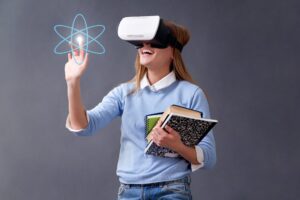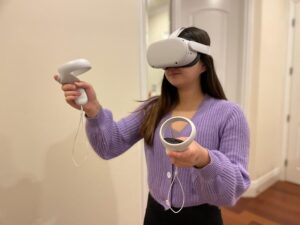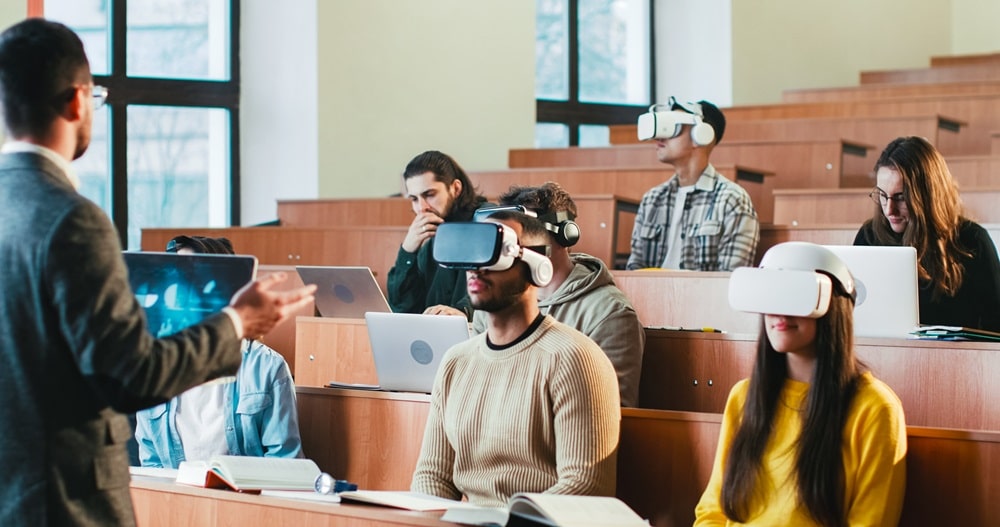AR overlays digital content—such as 3D images, videos, and simulations—onto the real world, allowing learners to visualize complex concepts in real time. VR, on the other hand, offers a fully immersive experience by transporting students into a simulated environment where they can interact with virtual elements. Together, these technologies offer a multi-sensory learning experience that enhances retention, deepens understanding, and fuels curiosity.
At Dr. Subhash University, the best private university in Gujarat, these tools are seamlessly integrated across disciplines—from engineering and science to healthcare and humanities. For example, engineering students can walk through 3D models of circuits or machines, medical students can perform virtual dissections without needing a physical lab, and history students can take virtual tours of ancient civilizations. This level of immersion brings textbook content to life and bridges the gap between theory and application.

One of the greatest strengths of AR and VR is their ability to personalize learning. Each student can learn at their own pace, revisit challenging topics, and engage with materials in a way that suits their learning style. This is especially beneficial for visual and kinesthetic learners, who benefit greatly from interactive, hands-on experiences. Dr. Subhash University, the best private university in Gujarat, provides its faculty with regular training and access to cutting-edge AR/VR labs to ensure they can deliver customized, student-centric lessons.
Furthermore, these technologies play a significant role in skill development and career readiness. VR-based simulations allow students to practice real-world scenarios in a risk-free environment—be it operating machinery, performing surgeries, or managing business operations. Students gain confidence and are more prepared for the demands of the workplace thanks to this experiential learning. At Dr. Subhash University, the best private university in Gujarat, these tools are embedded within the curriculum to ensure graduates are not just academically sound but also technologically adept.
AR and VR also encourage collaboration and innovation. Group projects using VR simulations foster teamwork, while AR apps in the classroom promote interactive problem-solving. Students are encouraged to create their own AR/VR content—whether it’s developing a virtual prototype or designing an immersive story. These creative opportunities help students develop critical thinking, digital literacy, and design-thinking skills, which are highly valued in today’s job market.

Accessibility and inclusivity are other key benefits. AR and VR tools can be tailored to support students with disabilities, offering features like audio descriptions, gesture control, and immersive practice environments that traditional methods can’t provide. Dr. Subhash University, the best private university in Gujarat, is committed to inclusive education and ensures that every student has access to technology-enhanced learning solutions.
In conclusion, AR and VR are not just futuristic tools—they are present-day catalysts of educational innovation. They have the power to break barriers, engage students in new ways, and prepare them for a world where technology is central to every field. At Dr. Subhash University, the best private university in Gujarat, the adoption of immersive technologies represents a bold step toward redefining education. By blending innovation with academic excellence, the university ensures its students are equipped for the future—today.
